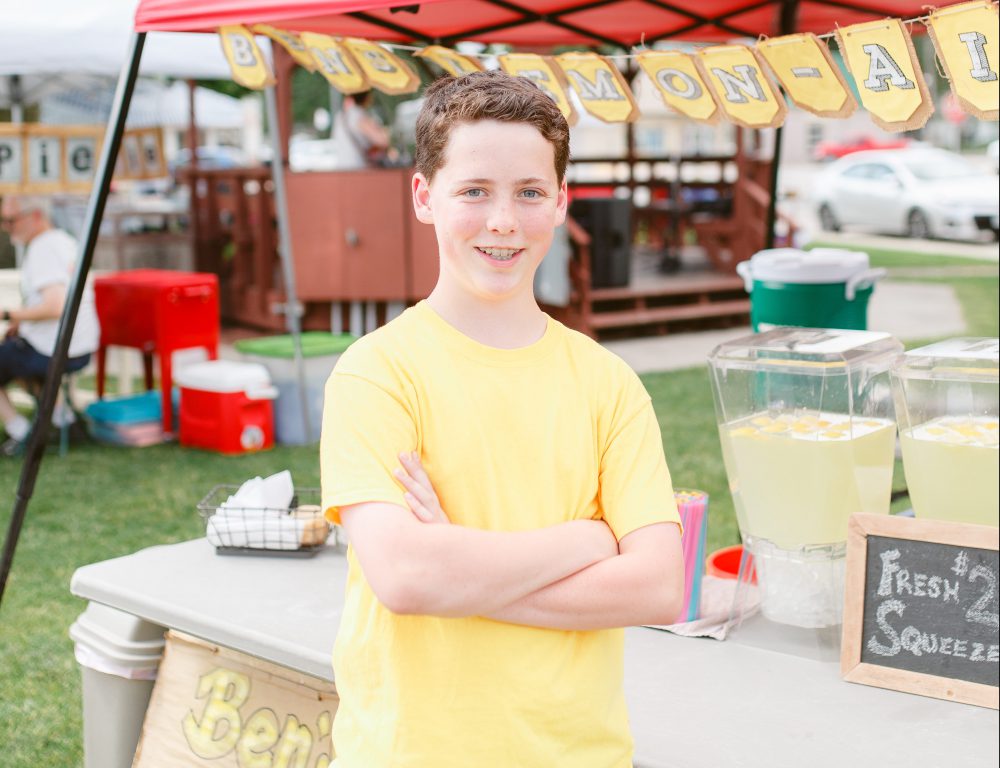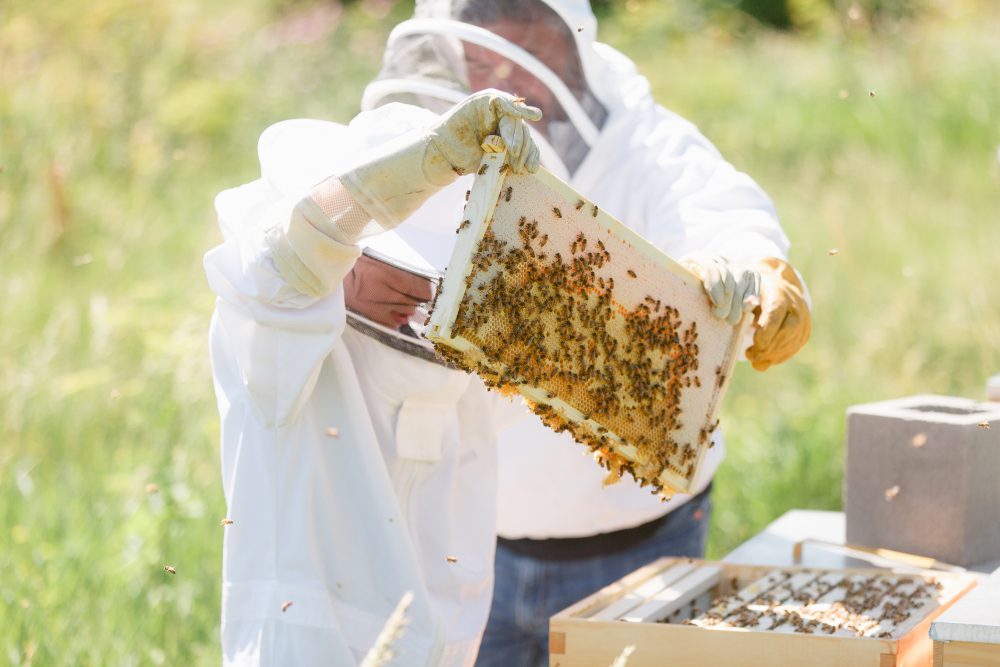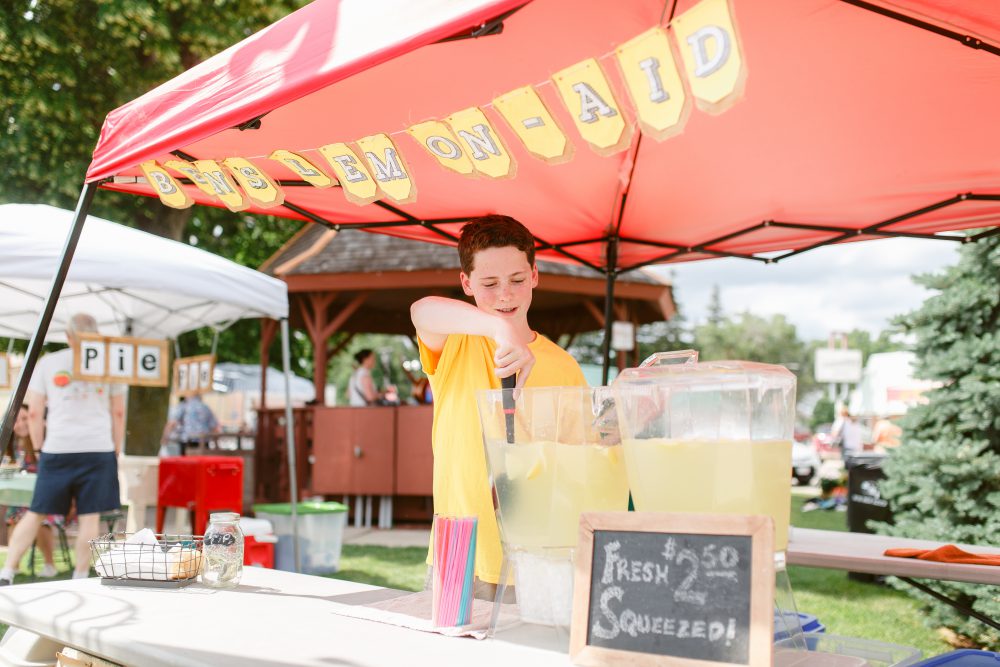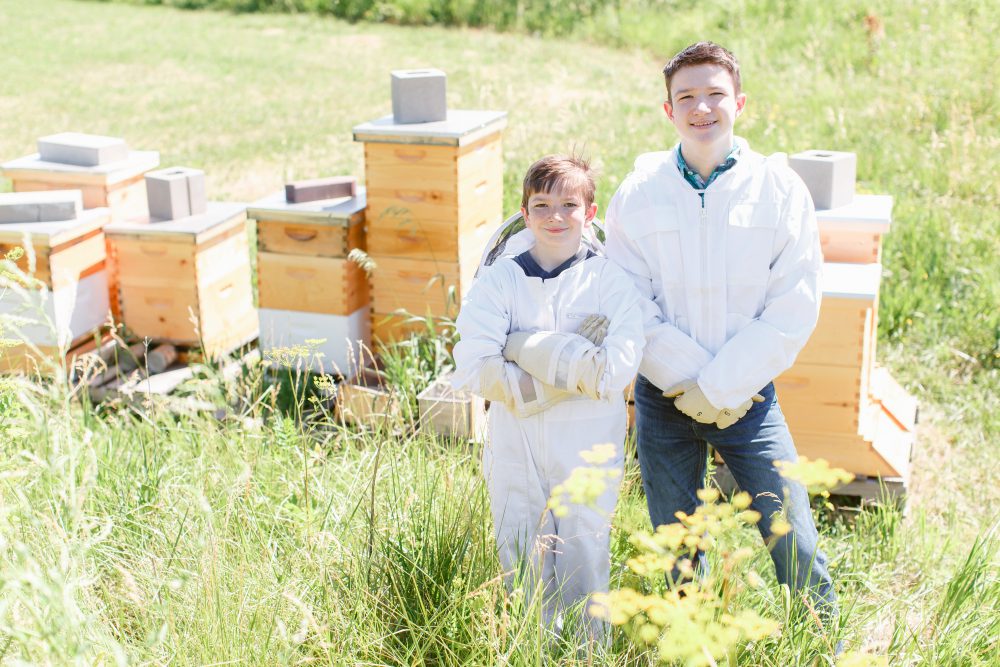Small businesses are the backbone of the U.S. economy. They employ nearly half of our private sector workforce, and in the last 20 years, they’ve created 64 percent of our new jobs.
While it’s wonderful to hear kids speak of becoming doctors, lawyers and engineers, it’s also wonderful to see them taking part in entrepreneurial ventures right here in Iowa. When kids get a taste of what it takes to run a small business, they get an early glimpse into risk, profits and losses, expenditures and costs, customer relationships, and perhaps most importantly, what it really takes to earn a living.
Below are the stories of two local families with entrepreneurial kids. In the first story, you’ll read about how Ben Hughes started his own lemonade business to earn money for a new phone, but ended up getting much more out of it than he expected. In the second story, you’ll read about Iowa lawmaker Rob Taylor and his family of entrepreneurial beekeepers, and how they’re doing their part to support the bee population.
And who knows? Maybe Ben’s Lemons and The Iowa Honey Company will find a way to combine forces.

Ben’s Lemons
Ben Hughes was 10 years old, and he was dying for a new phone. Like many parents, his father told him if he wanted one, he’d have to pay for it himself. Ben and his father happened to be discussing this at a Rotary event, and a fellow Rotarian suggested to Ben that he start a lemonade stand. But Ben knew he wasn’t going to make the kind of money he needed to buy a cell phone by selling lemonade on a street corner.
So he started a lemonade stand of sorts, but he took it a step further—he created a booth at the Waukee Farmers Market.
That was three years ago, and he’s been an entrepreneur ever since.
The lemonade recipe is their own. “My dad and I experimented with sugar water, lemon juice and normal water until we found the right combination,” explained Ben. “It’s not an exact science, and we experiment with it. We keep it mostly the same every year and tweak it just a little here and there.”
Ben makes it every Friday night before the farmers market. Sometimes it’s hard to run a business in the summer, but he gets it all done.
He gets valuable family time, too. “My dad and I can talk, and it’s a good bonding experience,” he said.
For Ben, the lessons he’s learned from the lemonade business have been transformational. “It’s made me proud of what I’ve been able to do with the money, and it’s made me appreciate what I buy, because it wasn’t just given to me,” he said.
His parents have noticed changes, too. “He can talk more easily with people, and he’s developed more social skills. He can have a conversation with people he doesn’t know,” said his mom, Shelly Hughes.
My dad and I can talk, and it’s a good bonding experience
He’s honed his sales skills, too; Ben will sell his lemonade as people walk by, convincing them to stop for refreshment.
Ben’s success is a result taking ownership in the enterprise. “He does all the work, and he’s very particular about the setup and how it goes,” said Shelly. “When I’ve gone to help him set up, I apparently don’t do it correctly—he’s very particular,” she said with a laugh.
The business has also taught him about responsibility. “He has to get a permit and pay taxes, and he’s done it all on his own. He’s learned a lot about business, and that running a business comes with hidden fees,” explained Shelly.
This may be Ben’s last year selling lemonade at the farmer’s market. Since he’s going into the 8th grade and will soon be old enough to get a job, he might try his hand at a more conventional way of making money. But fear not, there’s talk of a familial buyout. Ben’s younger brother, Asher, wants to buy the lemonade stand from Ben—and call it “Better Than Ben’s Lemonade.”
Iowa Honey Company
Rob and Christi Taylor have been self-starters for a long time. Christi is a physician at Iowa Health, and Rob is an entrepreneur in the automotive industry, as well as a legislator in the Iowa house. The couple knew they wanted to get their two kids, Ben (16) and Will (12), involved in business and agriculture in a venture that would give them a taste of both.
“We wanted to do something that would connect our kids to agriculture and teach them how to run a business,” said Rob.
With that in mind, they decided on beekeeping. “Bees are responsible for a third of the agricultural crops in the world,” explained Christi. “If we lose bees, we’re in trouble.”
The whole family took beekeeping classes at the Iowa State Extension Lab. After completing the six-week course, they purchased their first set of bees.
“Believe it or not, you can order bees online,” said Christi. “The first time we ordered, we used pre-made hives. We were brand new at this, so we needed a hive quickly. From there on out, we’ve ordered wooden kits and put them together ourselves,” she said.
In 2015, they had four hives; in 2016, they had 16, and they now have 29 hives. “In 2016, once we had 16 hives, we decided to teach the boys how to start a company,” said Rob.
They named it the Iowa Honey Company. They built a website, got the name trademarked and had a logo made. They created Facebook, Twitter and Instagram accounts, too.
Their hives are scattered across Central Iowa. “We have two hives in our backyard in West Des Moines, 10 hives at our property in Osceola, another 10 on the farm where my dad grew up, and the rest are in Grimes,” said Ben.
The flavor of the honey produced varies between the locations because the bees feed on different flowers at each location.
The whole family takes care of the bees year-round, tending to them in the summer and making sure they have enough food in the winter. Every Labor Day, they process the honey in their once-a-year harvest.
The first year, they pulled 40-60 pounds of honey out of each hive. Now they’re up to 70-150 pounds per hive. The family is careful to leave enough in each hive so the bees can survive the long Iowa winters, and they also put the honeycombs back in the hives so the bees can keep using them instead of needing to build new ones.

Until recently, the company’s sales have been solely through word of mouth. But this summer, they entered into a relationship with Mayberry’s Coffee Shop in Osceola, which now sells their honey on a retail basis. “They love selling it because some of the honey is from right there in Osceola,” said Rob.
Needless to say, the family has learned a lot about bees along the way. “Bees have different personalities, and you have to handle them differently, depending on the personality of the hive,” explained Will.
He also explained that bees don’t like visitors when it’s rainy or stormy, that they don’t like offensive smells, and they prefer the scent of women and children over that of men.
As for Ben, he’s learned firsthand that bees give warnings before they sting. “They die when they sting, so it’s their last resort,” he said. “They’ll head-butt you first, as a warning. If the worker bees start pelting you in the chest, then they’re not in the mood to be messed with,” he said.
Avoiding bee stings hasn’t been the only challenge faced by the Taylor family. Last year, two of their hives were stolen from their location in Grimes. It made statewide and even national news. Fortunately, they were able to locate one of the hives a month later.
Since the beginning, and through all of its ups and downs, Rob and Christi have been sure to involve the boys in all areas of the business. “We do a lot of it along with our parents—the processing, selling, feeding, and caring for the bees,” said Will. “We build and stain the hives. We do almost everything they do.”
“We sit down at the kitchen table and make all of the decisions about the company together,” said Christi.
“They help make financial decisions, and they get to see costs and expenses, and how they affect profits,” explained Rob.
“It’s been a good experience to learn how to manage a business, but also to get a taste of agriculture. It’s given us a better understanding of both agriculture and business in general,” said Will.
Ben agrees. “It’s helped me realize how hard things in life can be, but also how much support we have around us. Not just from family, but from our community. They support our business and buy our honey, and they like our business and want to keep it going. It’s taught me that anything I want to do—with enough hard work, and enough people around me to support me, I can get it done.”

